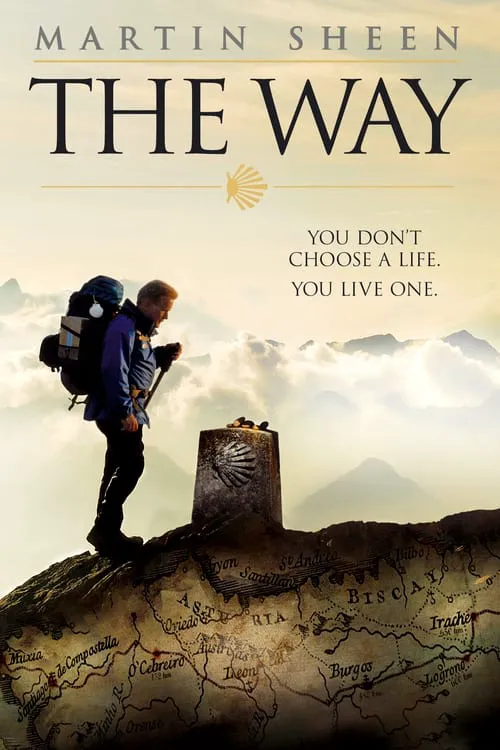The Way

Plot
The Way is a poignant drama that delves into the complexities of grief, redemption, and the transformative power of travel. Tom, a successful eye doctor, is driven by a sense of duty and obligation when he receives the news of his son Daniel's passing. Daniel had been trekking along the renowned Camino de Santiago, a centuries-old pilgrimage route that stretches from France to Spain, and Tom decides to fly to France to claim his son's remains. As Tom navigates the emotional terrain of his son's death, he begins to question his relationship with Daniel and the choices he made as a father. His guilt and regret over not being more supportive of Daniel's desire to embark on the Camino de Santiago weigh heavily on his conscience. When he is handed Daniel's backpack, which is still packed with his belongings, the tangible connection to his son's journey serves as a catalyst for Tom's decision to embark on the Camino himself. Tom's decision to complete the 500-mile trek is not motivated solely by a desire to come to terms with his son's death. Rather, he hopes to gain a deeper understanding of Daniel's life, values, and aspirations. As a father who has often prioritized his career over his family, Tom seeks to reconnect with the person his son was and the journey he undertook. The act of walking in his son's footsteps, albeit many miles behind, offers Tom a chance to make amends for past mistakes and find closure. As Tom continues along the Camino, he encounters a diverse group of travelers from different walks of life. There's Joost, a Dutchman who has lost his wife; Sarah, a Canadian who is trying to escape her painful past; and Conrad, a gruff Spanish farmer who is searching for spiritual guidance. Each of these pilgrims is driven by their own set of motivations, and as they walk alongside one another, they form an unbreakable bond. The Camino de Santiago serves as a powerful backdrop for the film, with its rugged landscape, idyllic villages, and the camaraderie that develops among the pilgrims. Tom soon realizes that the others on the path are not solely searching for physical or spiritual enlightenment but are also seeking connection, healing, and a deeper sense of purpose. Through their stories and struggles, Tom comes to understand that he is not alone in his grief and that the act of walking together can be a profound act of healing. As Tom continues his journey, he begins to confront his own demons and confront the choices he made as a father. His relationships with the other pilgrims serve as a catalyst for self-reflection, forcing him to re-examine his priorities and values. Tom also meets Irene, a beautiful Spaniard who lost her husband in the mountains, and the two eventually form a deep connection that transcends mere friendship. Through his encounters with others on the Camino, Tom undergoes a profound transformation. He begins to see the world through different eyes, understanding the complexities and beauty of the people he meets. The act of walking itself becomes a metaphor for life's journey, a path filled with uncertainty, beauty, and unexpected challenges. Ultimately, The Way is a film about the power of forgiveness, the importance of human connection, and the transformative nature of travel. Through Tom's journey, the film reminds us that we are all searching for something – whether it's redemption, meaning, or love – and that the act of walking alongside others can bring us closer to the answers we seek. By exploring the complexities of grief and the beauty of human connection, director Emilio Estevez creates a poignant and powerful film that will resonate with audiences long after the credits roll.
Reviews
Recommendations




